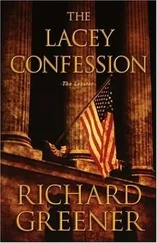Richard Greener - The Knowland Retribution
Здесь есть возможность читать онлайн «Richard Greener - The Knowland Retribution» весь текст электронной книги совершенно бесплатно (целиком полную версию без сокращений). В некоторых случаях можно слушать аудио, скачать через торрент в формате fb2 и присутствует краткое содержание. Жанр: Триллер, на английском языке. Описание произведения, (предисловие) а так же отзывы посетителей доступны на портале библиотеки ЛибКат.
- Название:The Knowland Retribution
- Автор:
- Жанр:
- Год:неизвестен
- ISBN:нет данных
- Рейтинг книги:5 / 5. Голосов: 1
-
Избранное:Добавить в избранное
- Отзывы:
-
Ваша оценка:
- 100
- 1
- 2
- 3
- 4
- 5
The Knowland Retribution: краткое содержание, описание и аннотация
Предлагаем к чтению аннотацию, описание, краткое содержание или предисловие (зависит от того, что написал сам автор книги «The Knowland Retribution»). Если вы не нашли необходимую информацию о книге — напишите в комментариях, мы постараемся отыскать её.
The Knowland Retribution — читать онлайн бесплатно полную книгу (весь текст) целиком
Ниже представлен текст книги, разбитый по страницам. Система сохранения места последней прочитанной страницы, позволяет с удобством читать онлайн бесплатно книгу «The Knowland Retribution», без необходимости каждый раз заново искать на чём Вы остановились. Поставьте закладку, и сможете в любой момент перейти на страницу, на которой закончили чтение.
Интервал:
Закладка:
He swigged his Diet Coke and turned to the Times business section because nothing else there interested him. His focus on the three was now complete. He was not at all surprised when, after two minutes of guarded grunts and glances, one of them approached.
Before the man had a chance to say anything at all, Walter said, in his loosely strung, neighborly voice, “Sit down.” He motioned to the seat beside him, the last one before the fan and the kitchen door. “Who are you?” he asked amiably, as the big man’s broad bottom hit the high wooden seat.
“My name is Tom Maloney,” the visitor spoke pleasantly, through a slight, formal grin. Pretty calm too, thought Walter, who tended to make quick and lasting judgments about people. Every woman he’d ever loved, he’d loved at first sight. He’d been told many times, mostly by ex-lovers, that this was a serious character flaw. Walter saw it as a mixed blessing but a definite net plus, a self-protective reflex he was sure had saved him more than once in the rush of the past thirty years. Maloney was Walter’s age, give or take a few either way-round-featured, smooth-skinned, and pink. He had thin, once-blond, once-wavy hair, heavy shoulders, and a big, Irish beer belly just about hidden by a skillfully cut chocolate silk suit. Rich, no doubt, and smart too. But still a messenger for one of the other two. “Which?” flitted across Walter’s mind.
He liked this one.
“What can I do for you, Tom?”
“You are Walter Sherman, aren’t you?”
“Yeah.” Walter lifted his sparse eyebrows and took a longer sip. “You want one of these?”
“No. No thanks,” Maloney grinned a little more easily. “Too early for me.”
“You know who I am. You wouldn’t be sitting here if you didn’t.”
“Right,” Maloney’s cherubic face broke into the full, friendly smile Walter knew it would. “That’s why we’re here,” he said. “Is there some place we can talk?”
Walter took another forkful of eggs, folded his paper, and put it down on the bar. He looked back at Maloney’s companions-giant and micro-man-whispering by the door, and his voice rose half an octave, acquiring an edge. “The way you guys are dressed it better be someplace air conditioned.” Then he spoke softly again, demonstrating his regard for Tom. “Meet me here.” He handed Maloney a bar napkin with an address he’d scribbled. “Five o’clock. You can introduce us then, not now.”
“Excellent,” Maloney said. “Excellent.”
“Take a cab,” Walter called after them as Tom urged his party into the sunlight, “You’ll never find it on your own. And dress comfortably, for God’s sake.”
He had no idea who these guys were, but he knew what they wanted, why they needed to see him. The coming scene had played out many times before, not necessarily here on St. John, but always along predictable lines.
An unhappy high school counselor once told Walter that few people know much in advance what their life’s work will be. Some doctors perhaps, because their parents make the decision for them when they are born. Some sons of business owners who must prepare to become amp; Sons, often to their lifelong chagrin. Conceivably, a handful of precociously pious pastors get the call in the cradle. But how many children tell their friends, “I want to sell office equipment”? How many college students look in the mirror and practice asking, “You want fries with that?” And few, if any, Walter learned, ever intended to wind up teaching high school physics to the underequipped, let alone advising profoundly limited youngsters on their career options.
Walter Sherman was called neither to God nor to medicine. He had no father, not even an uncle who owned a business. He sold his share of french fries, but never considered teaching physics or anything else. He joined the Army at eighteen, on his birthday, in 1970. He had nothing better to do. As he still sometimes said when thinking it was appropriate-it seemed like a good idea at the time. At the time he was a high school graduate working as a car washer and gofer-boy at a local Ford dealership. He was living in his mother’s house just outside of Rhinebeck, New York. Before he could say “I made a mistake!” he was in Vietnam. He could not remember why he re-upped, but he did. When he left the Army at twenty-five he had no better idea of how to make a living than he’d had seven years before. The army had trained him with guns and knives and handheld explosives. If Dutchess County New York had that kind of work available, he didn’t know where it was. Nor did he know anyone who needed to be found.
Colonel DeScortovachino called Mrs. Sherman’s house on a rainy Sunday in the spring of 1977. The call gave Walter’s life direction.
“Walter!” the Colonel began in a false-hearty tone.
“Who is this?”
He introduced himself as “Colonel D” and explained that Walter’s Vietnam CO was now attached to the Colonel’s unit, hence Colonel D’s “fortuitous awareness” of Walter.
“Son,” he intoned, “I need your help.” The Colonel was assigned to The School of the Americas and lived near Fort Benning just outside Columbus, Georgia. His sixteen-year-old daughter, Jessie, was nowhere to be found.
“She’s not really missing,” the Colonel said, “She just ran away. Her mother says we… shit, that’s not important. My point is that Jessie’s gone.” His voice changed just then. Its theatrical flourish fell away and a strange, melancholy pleading rose to soften the Colonel’s military twang. Walter didn’t recognize it then, but over the years he came to know that sound well. It signaled a desperation only someone who’s lost someone feels. It was all about lost and missing. Dead may or may not kill you, but, Walter learned, lost and missing rip the insides with hot knives. Lost and missing produce a perpetual frenzy of mind that makes many people think they are close to insane every minute of every day. Such people always had, when their energy flagged, that sorrowful sound in their voice.
Walter didn’t need to ask why a colonel a thousand miles away, a man who didn’t know him from Adam’s uncle, would make such a call.
In the absurd jungle that was Saigon in the early 1970s, Walter was often called by the descriptive nickname Locator. It wasn’t a funny nickname like Bonehead or Lardass, or chummy, like Chip or Chief. It wasn’t the kind of nickname you used to bum smokes. Nobody said, “Locator, got a butt?” This was a nickname of the highest order. It was earned. The earning of it started with a member of Walter’s platoon who’d gone AWOL.
There were, as Walter recalled, two reasons most soldiers ran away, which was all that AWOL really was-running away, escaping jail, dashing to imagined safety somewhere. Either they went temporarily nuts-from the combat, from the drugs, from the simple unrelenting madness of what was going on-or they went over; defected. American MPs in Saigon took little joy in finding the nutcases. They followed the drugs; followed the girls. They usually found their AWOL soon enough. But after a week, if the missing soldier wasn’t found, he became a “motherfucker,” a political deserter. MPs got off on them because the reward for becoming political could be death. The order of the day was no longer “find and return,” but “dispatch.” More AWOLs turned up as combat deaths than anyone talked about.
Читать дальшеИнтервал:
Закладка:
Похожие книги на «The Knowland Retribution»
Представляем Вашему вниманию похожие книги на «The Knowland Retribution» списком для выбора. Мы отобрали схожую по названию и смыслу литературу в надежде предоставить читателям больше вариантов отыскать новые, интересные, ещё непрочитанные произведения.
Обсуждение, отзывы о книге «The Knowland Retribution» и просто собственные мнения читателей. Оставьте ваши комментарии, напишите, что Вы думаете о произведении, его смысле или главных героях. Укажите что конкретно понравилось, а что нет, и почему Вы так считаете.











